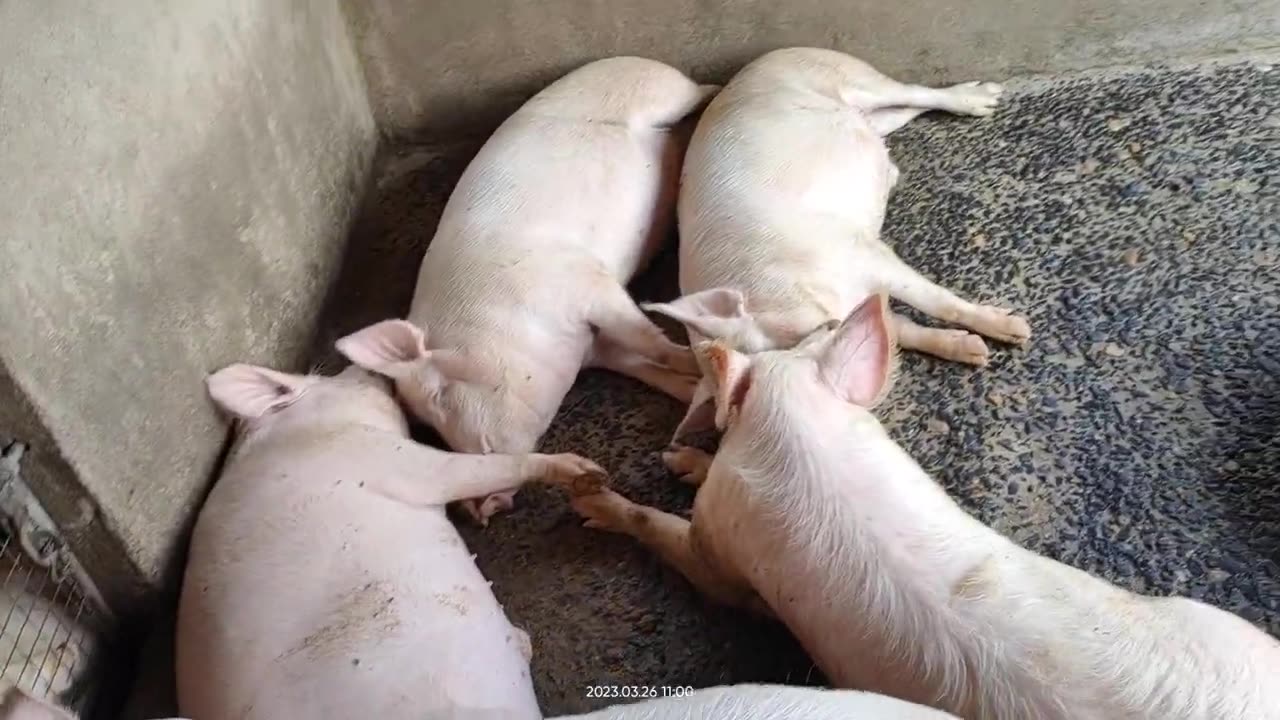Premium Only Content

Unveiling Intensive Pig Farming | cruelty farm
Intensive pig farming, also known as factory pig farming or industrial hog farming, is a method of raising pigs in confined environments with high stocking densities. In this system, pigs are typically housed indoors in large barns or buildings, often in overcrowded conditions. The primary goal of intensive pig farming is to maximize efficiency and production, leading to higher yields of pork products.
In intensive pig farming systems, pigs are often kept in crowded pens or cages, which can lead to stress, injuries, and the spread of diseases. The use of antibiotics is common to prevent illness in these crowded conditions, contributing to concerns about antibiotic resistance in both animals and humans.
Moreover, intensive pig farming practices often involve the use of farrowing crates, which are small metal enclosures used to confine pregnant sows during the birthing process. These crates severely restrict the movement of the sow, preventing her from turning around or engaging in natural behaviors like nesting and foraging. While proponents argue that farrowing crates protect piglets from being accidentally crushed by the sow, critics contend that they cause immense suffering and are inherently cruel.
The environmental impacts of intensive pig farming are also significant. The concentration of large numbers of pigs in small areas leads to the accumulation of manure, which can pollute soil and waterways if not properly managed. Additionally, the use of feed crops for pig production contributes to deforestation and habitat destruction.
Overall, while intensive pig farming has increased efficiency and lowered production costs, it raises serious ethical, environmental, and public health concerns. As consumers become more aware of these issues, there is growing demand for more sustainable and humane alternatives to intensive pig farming practices.
Website: https://cruelty.farm
-
 31:40
31:40
Tactical Advisor
53 minutes agoEveryone Talks About This AR15 Being The Best? | Vault Room Live Stream 034
8583 -
 1:08:53
1:08:53
Michael Franzese
15 hours agoHollywood Deaths & Political Secrets: A Nation at a Crossroads?
133K58 -
 9:27
9:27
MattMorseTV
22 hours ago $10.37 earnedHe just lost EVERYTHING.
39.1K43 -
 1:40:30
1:40:30
I_Came_With_Fire_Podcast
13 hours agoPrivate Military Contractors Are TRAFFICKING KIDS Around The United States
23.2K11 -
 LIVE
LIVE
JdaDelete
14 hours ago $1.85 earnedFinal Fantasy VII Rebirth | Jdub's Journey Part 8 - Corel Prison
211 watching -
 2:39:09
2:39:09
LFA TV
19 hours agoTHE ARK ENCOUNTER LIVE EVENT! 7.26.25 9AM EST-12PM EST
201K26 -
 3:20:34
3:20:34
Sgt Wilky Plays
4 hours agoTherapeutics with Dr Kong
12K -
 1:10:23
1:10:23
Man in America
1 day agoAre MK-Ultra Parasites Rewiring Your Brain? | Detoxing, Peptides & Parasite Warfare w/ Diane Kazer
42K55 -

TheSchleppy
1 day ago $0.70 earned✨TheSchleppy✨24HR 2 YRS ON RUMBLE STREAM! RIGHT INTO RUMBLE HALO EVENT!
13.2K5 -
 3:08:21
3:08:21
JakRazGaming
5 hours agoPlaying Ghost of Tsushima DIRECTOR'S CUT!! on PS5 Stream 6
20.9K2